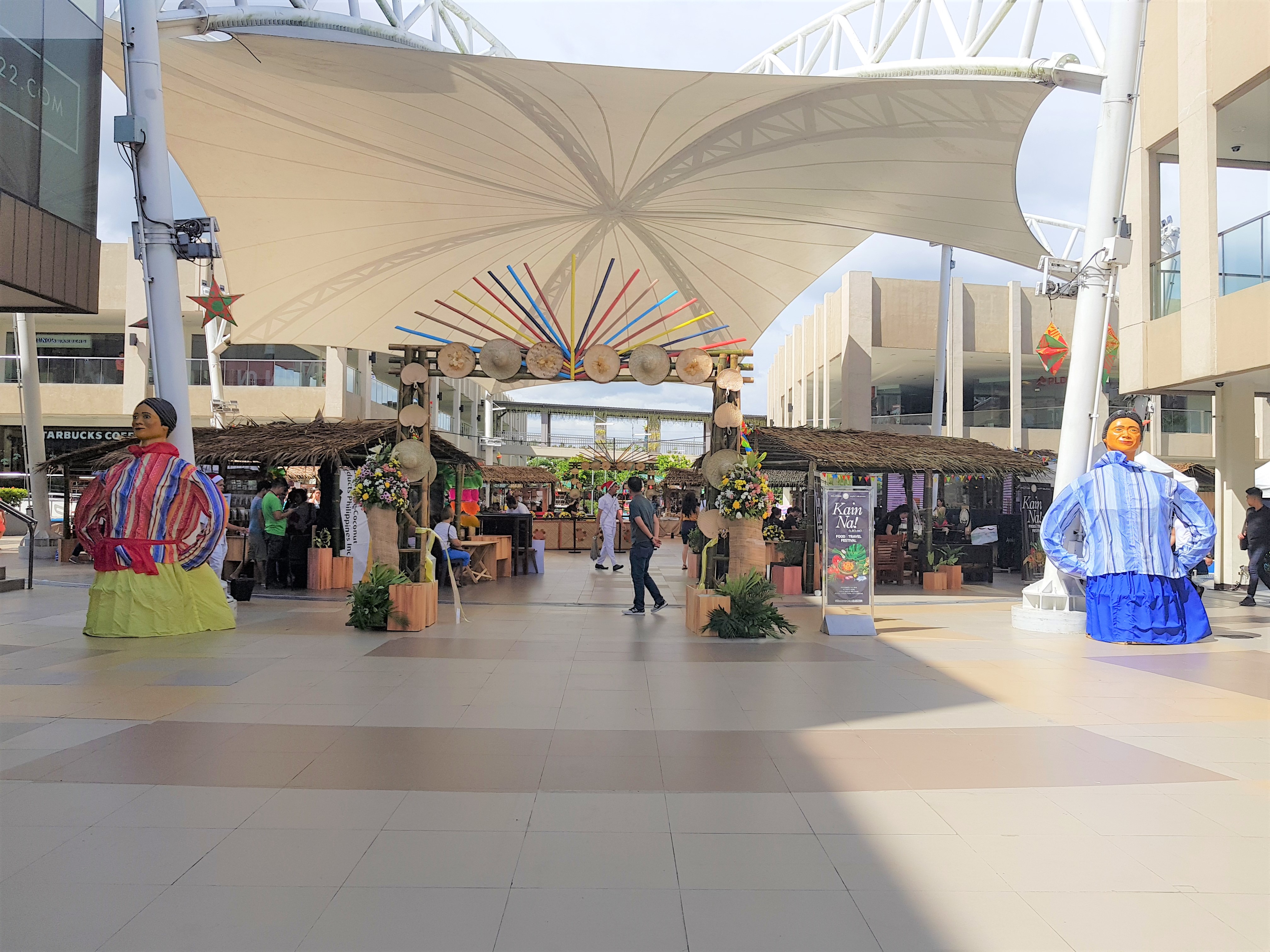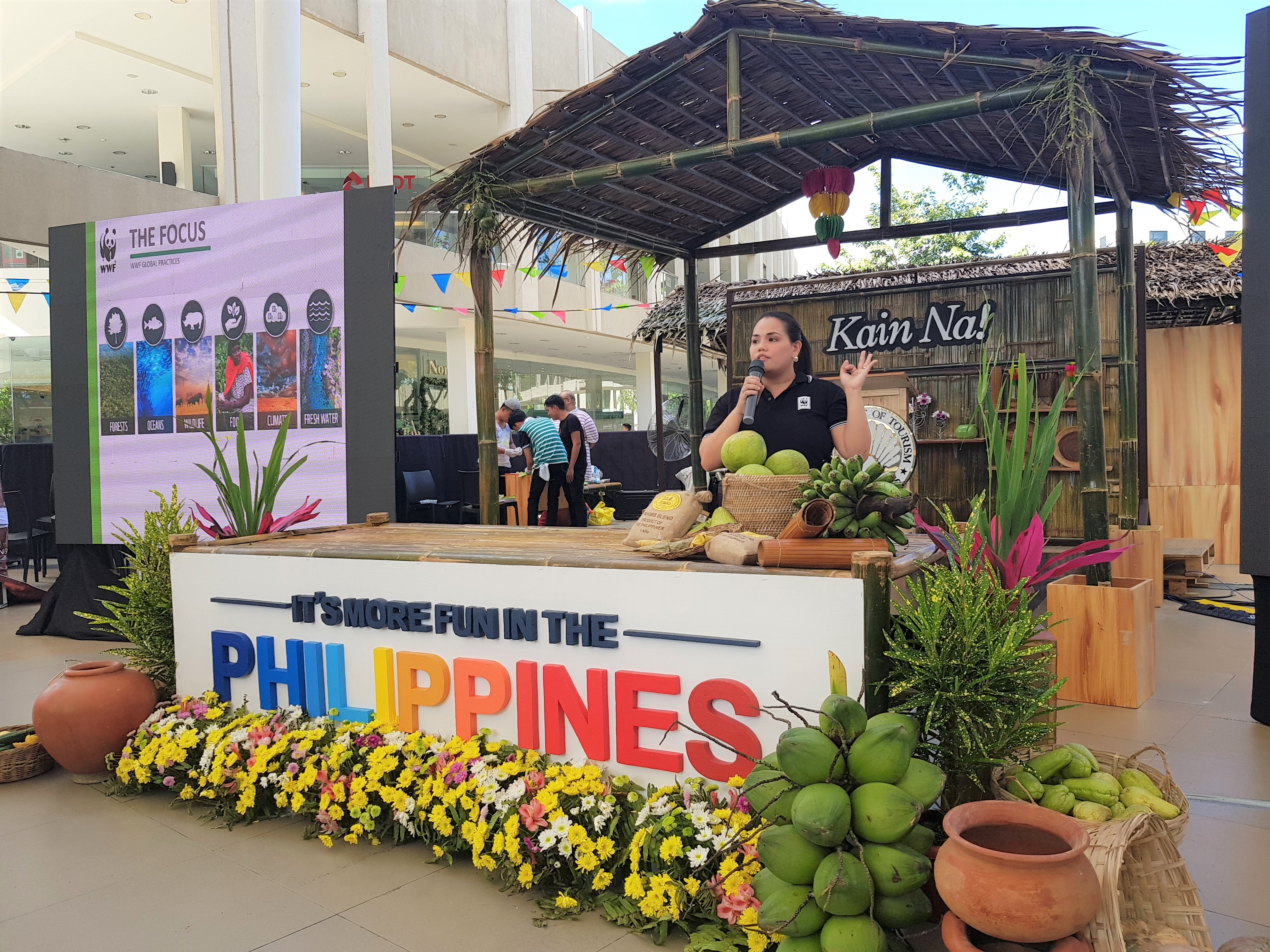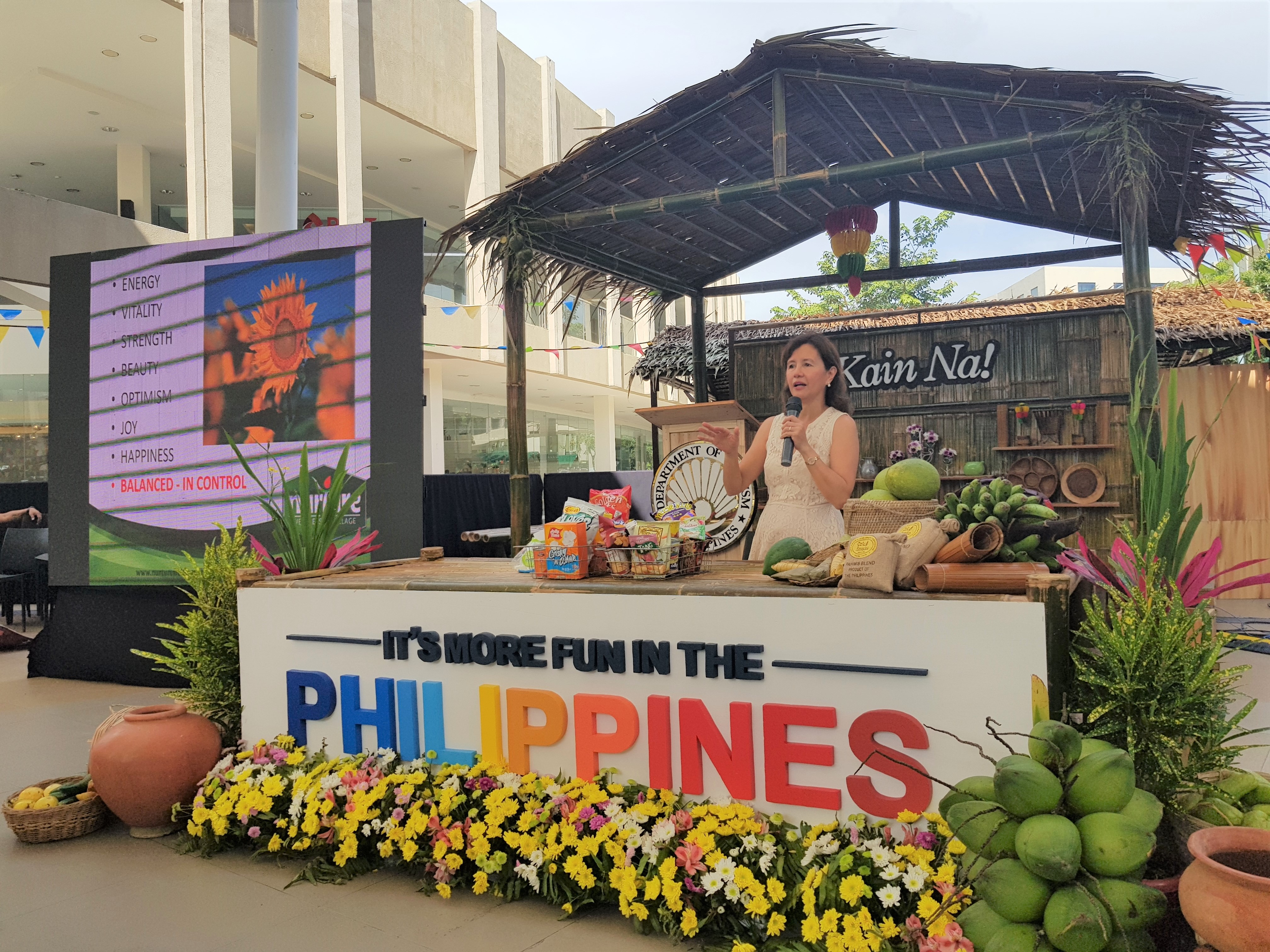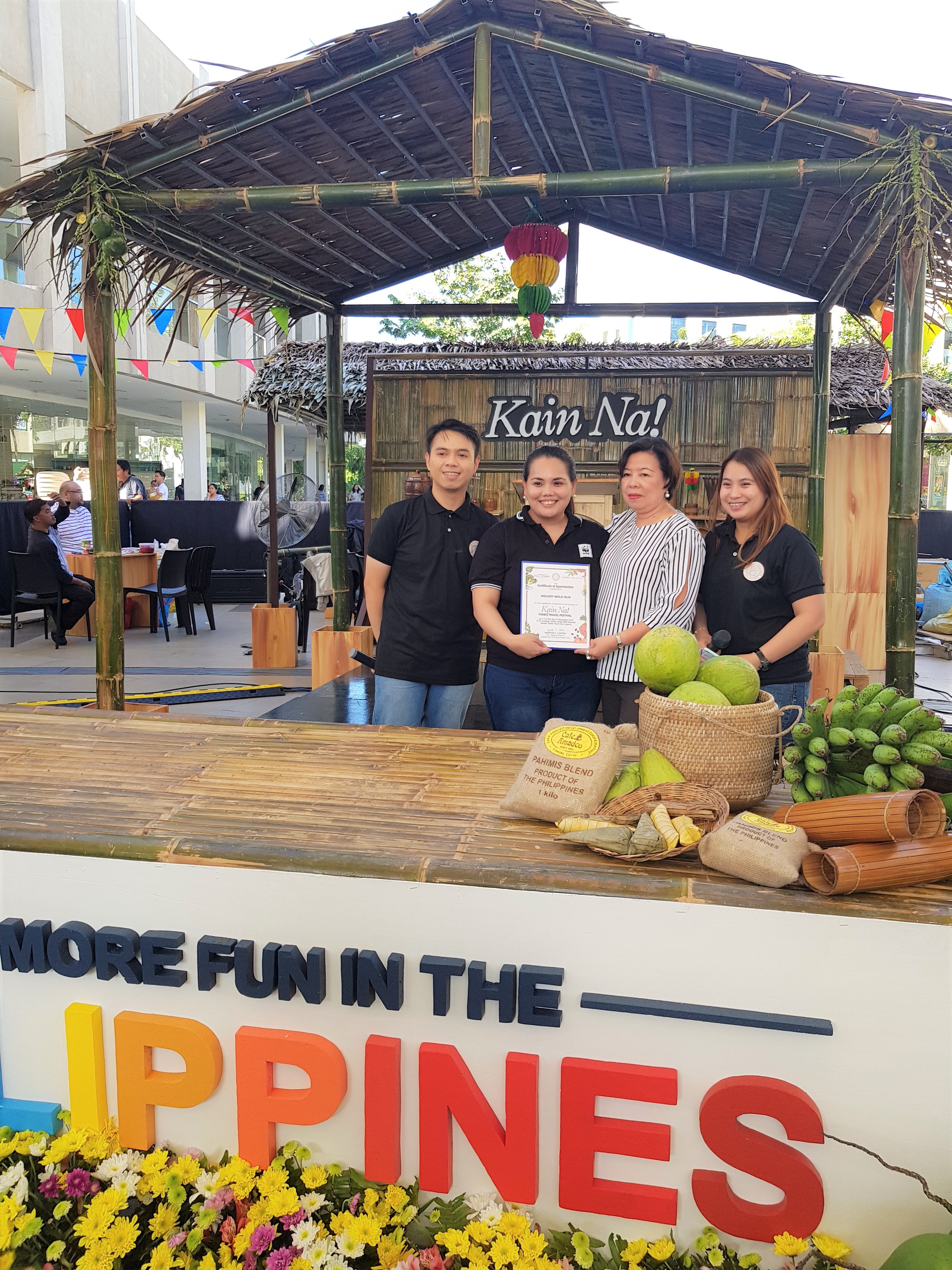The Sustainable Diner at Kain Na! Food & Travel Festival 2018
December 2018

Colorful designs and traditional booths highlighting the best of Filipino culinary culture displayed at the Ayala Malls Solenad as part of DOT Calabarzon’s Kain Na! Food & Travel Festival. Photo © Lorayne Roque / WWF-Philippines
Last December 9, World Wide Fund for Nature (WWF) Philippines’ The Sustainable Diner: A Key Ingredient for Sustainable Tourism project was invited to speak at Kain Na! Food & Travel Festival, held at the Ayala Malls Solenad activity center. Launched by the Department of Tourism (DOT) in a bid to bolster the country’s reputation as one of the world’s culinary hubs, Kain Na!, a part of a series of events held simultaneously in Laguna, Pampanga, and Davao, aims to promote the Philippines’ culinary culture and tradition, and to attract tourists to visit and include local food in their travel itineraries. The Laguna leg in particular, spearheaded by the DOT Calabarzon and conducted in partnership with Ayala Malls, aims to promote the region’s authentic cuisine. Listed by the Philippine Information Agency, exhibitors included hotels and restaurants, farm resorts, agro industry groups, eco-farm adventure parks, transport operators, the academe, and civil society organizations.

Melody Melo-Rijk, project manager of The Sustainable Diner Project, sharing the six global practices of WWF to the audience, which includes food as a major focus in the fight against biodiversity loss. Photo © Lorayne Roque / WWF-Philippines
Melody Melo-Rijk, WWF-Philippines’ Project Manager for Sustainable Consumption and Production, was invited to conduct a lecture on Food Waste, Food Safety, and Proper Handling. These topics are seen as major components and contributors to what will ultimately make food and culinary tourism successful in the Philippines. Starting off with a backgrounder on WWF, Melo-Rijk shared with the crowd the different global practices of the organization, with an emphasis on the Food practice and how the assessment of food production practices is important in reducing biodiversity loss. She also introduced everyone to The Sustainable Diner project and how, through food waste management initiatives and toolkits, it is able to help restaurants and hotels monitor and reduce the food waste that they produce. “When it comes to local tourism, food is an essential ingredient in truly promoting it because our islands are known for producing a variety of authentic dishes per region”, says Melo-Rijk. “And in promoting food and culinary tourism, we need to take into account the health and well-being of our tourists by ensuring that the food we serve them is clean and safe. Of course, we also take into account the health of the environment by becoming aware of the food waste we produce and taking steps to reduce it.”

Cathy Turvill of Nurture Wellness Village discusses the importance of food in an individual’s overall wellness. Photo © Lorayne Roque / WWF-Philippines
Cathy Turvill, President of Nurture Wellness Village, one of The Sustainable Diner project’s partner establishments in Tagaytay City, was also invited to speak during the event. Using the idea of wellness and how food is a key to ensuring that we live our best possible lives, she shared with the audience different steps to follow in assessing what we feed our bodies. She advocated for nutrition labels and ingredients disclosure in products, as well as proper food portioning for health and wellness.

Representatives from DOT Calabarzon presenting a certificate to Melody Melo-Rijk, who is representing WWF-Philippines and The Sustainable Diner project. Photo © Lorayne Roque / WWF-Philippines
The Sustainable Diner project is one with the DOT in promoting the country’s food and culinary wonders. In sharing this advocacy, we hope that sustainable consumption and production practices will be put in place in the operations of our local food service industry, which is a key ingredient to the growth of the sustainable tourism movement in the Philippines.
The Sustainable Diner project, under WWF-Philippines’ Sustainable Consumption and Production, is part of the International Climate Initiative (IKI). The Federal Ministry for the Environment, Nature Conservation, and Nuclear Safety (BMU) supports this initiative on the basis of a decision adopted by the German Bundestag.
